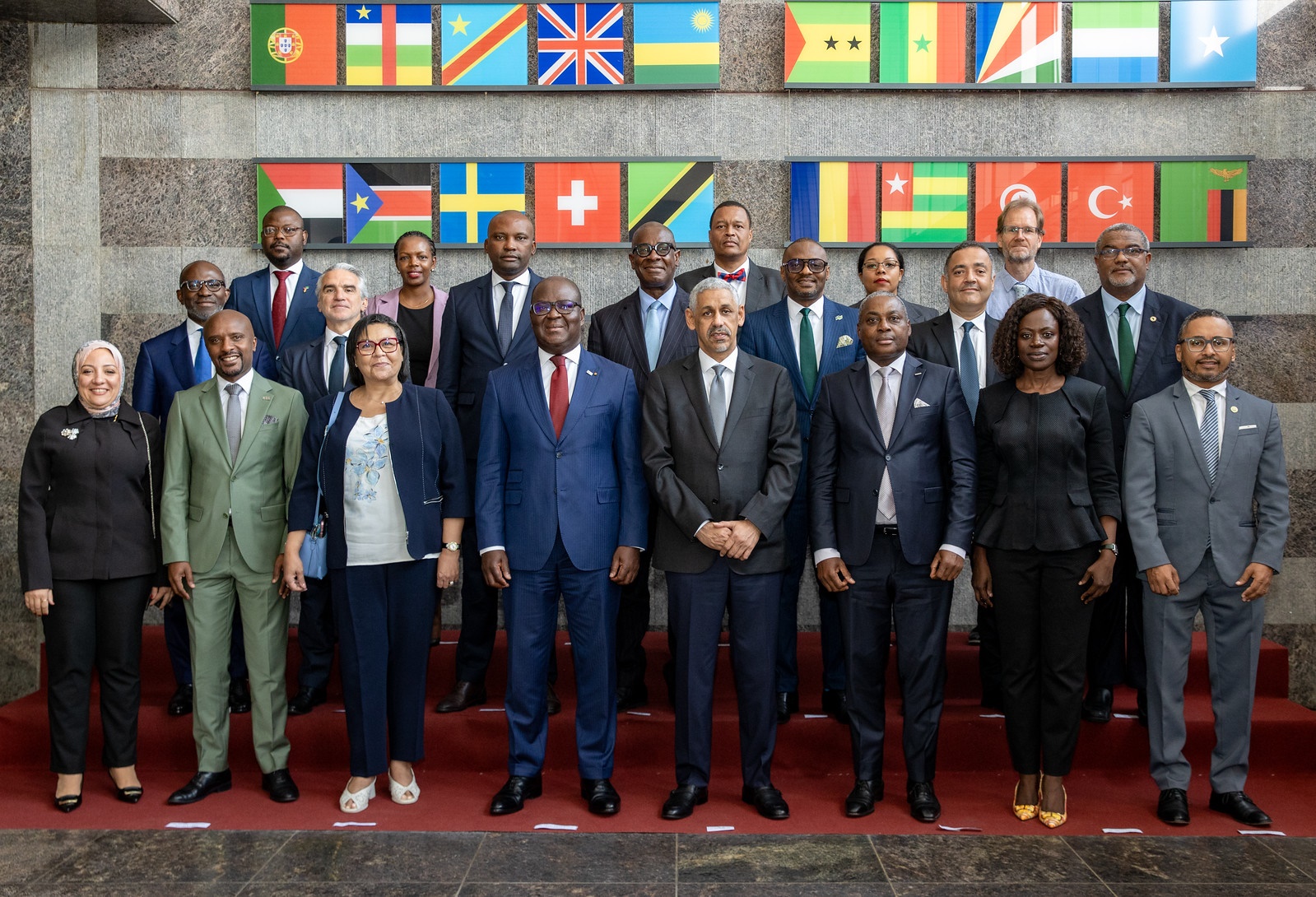
Caption: AfDB president Dr Sidi Ould Tah and heads of African Stock Exchanges in Abidjan on Tuesday, November 18, 2025
Over 50 representatives of regional and continental banks and development finance institutions and private sector financial partners across Africa are at the African Development Bank (AfDB) Group headquarters in Abidjan on the invitation of its president, Dr Sidi Ould Tah, for a meeting he said has become vital to the continent’s destiny.
The two-day meeting is part of a round of high-level engagement aimed at fashioning what has been described as a bold, historic blueprint for a New African Financial Architecture, expected to bridge the financing gap for the continent’s development needs.
Opening the first session with heads of African securities exchanges, private equity funds and venture capital fund, Dr Tah described them not just as architects of Africa’s capital markets, but “custodians of financial institutions and catalysts of our continent’s future.”
The meeting, a first of its kind between the Bank and African stock exchanges, aims to explore their role in long-term financing, with a focus on reforming how Africa’s capital is mobilized.
Commenting, Dr Felix Edoh Kossi Amenounve, Chief Executive Officer of the West African Regional Stock Exchange (BRVM), welcomed the meeting, highlighting the need for fundamental change, especially because of the existing “gaps between financing needs and available resources
“We need to think about the reforms needed to achieve the capitalisation of African pension funds. Because these funds were originally created to finance governments,” Amenounve said.
The continent’s leading financial institutions represented at the meetings include the African Exchange Linkage Project (AELP), Nigerian Exchange Limited, Rwanda Stock Exchange, Mozambique Stock exchange, Cabo Verde Stock Exchange, Nairobi Stock Exchange, Tunis Stock Exchange, West African Regional Stock Exchange (BRVM), the Central African Stock Exchange, Casablanca Stock Exchange and the Ghana Stock Exchange.
Dr Ould Tah said “the capital markets are the bedrock upon which long-term, sustainable economic growth is built, by mobilizing patient capital, you provide our sovereigns and businesses with diversified funding sources, while offering investors, particularly institutional investors, a broader array of opportunities.”
Underpinning Dr Ould Tah’s Four Cardinal Points since taking over the helm of the institution in September is increasing access to predictable and affordable long-term financing.
A key objective of the consultations is to enable financial flows for private equity and venture capital by reinforcing existing African investment funds and expanding their capacity to finance small and medium-sized enterprises (SMEs), mid-market companies, and emerging industrial champions.
SMEs which represent nearly 90% of businesses and over 60% of jobs on the continent continue to face limited access to risk capital.
The promotion of sustainable finance, the digitalisation of markets, attracting investment capital to Africa’s markets, and programmes tailored to SMEs were among the issues discussed during the meeting.
The development of financial education among young people was also highlighted as a key focus for the approach to be developed by the continent’s stock exchanges, as well as increasing the use of digitalisation tools and fintech to boost opportunities.
Donald Waweru Wangunyu, Non-Executive Director, Nairobi Stock Exchange, stressed the need for regional coordination in order to achieve “scaling up, policy coordination and implementation of reforms; we have good projects, but the obstacles are still there, ” he said.
Ms Sonia Ben Frej, Chairwoman of the Board, Tunis Stock Exchange, emphasised the problems of regulatory convergence and the need to update obsolete regulations.
Through engagement with fund managers, institutional investors, DFIs, and regulators, the goal of the two-day meetings will be to forge a path for financial institutions to mobilise additional financing for Africa, to enable countries to avoid the existing dependance on overseas development assistance.
Dr Ould Tah said the Bank Group would take a comprehensive approach to capital market development, focusing on three key pillars, namely: Supporting capital market regulatory authorities, stock exchanges, and other intermediaries through technical assistance, institutional support projects, and policy-based operations; Diversifying savings mobilization and market participants to promote product liquidity and deeper markets for credit enhancement companies, institutional investors, and other financial institutions; and Research, training, and policy dialogue to enhance the capacity of Africa’s capital market stakeholders.
Capital markets development across Africa, the AfDB stressed in a statement, is a key priority and woven into the fabric of the strategic priorities of the Four Cardinal Points. Development finance institutions especially have a catalytic role to play.
‘We will build it together, it requires a collective effort from each of us,” Dr Ould Tah explained.
The consultations will continue on Wednesday for a second day, with heads of African Development Financial Institutions.











